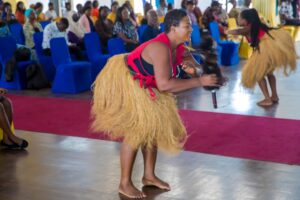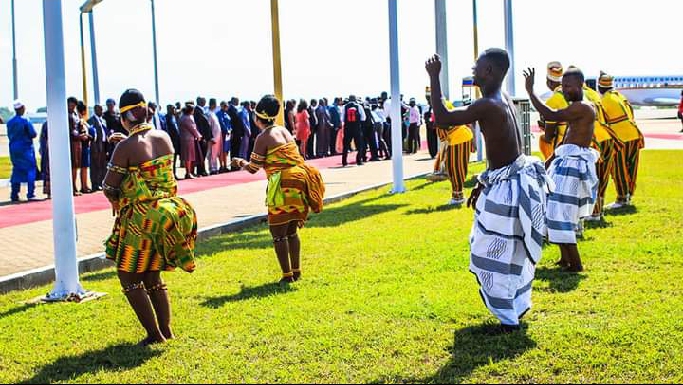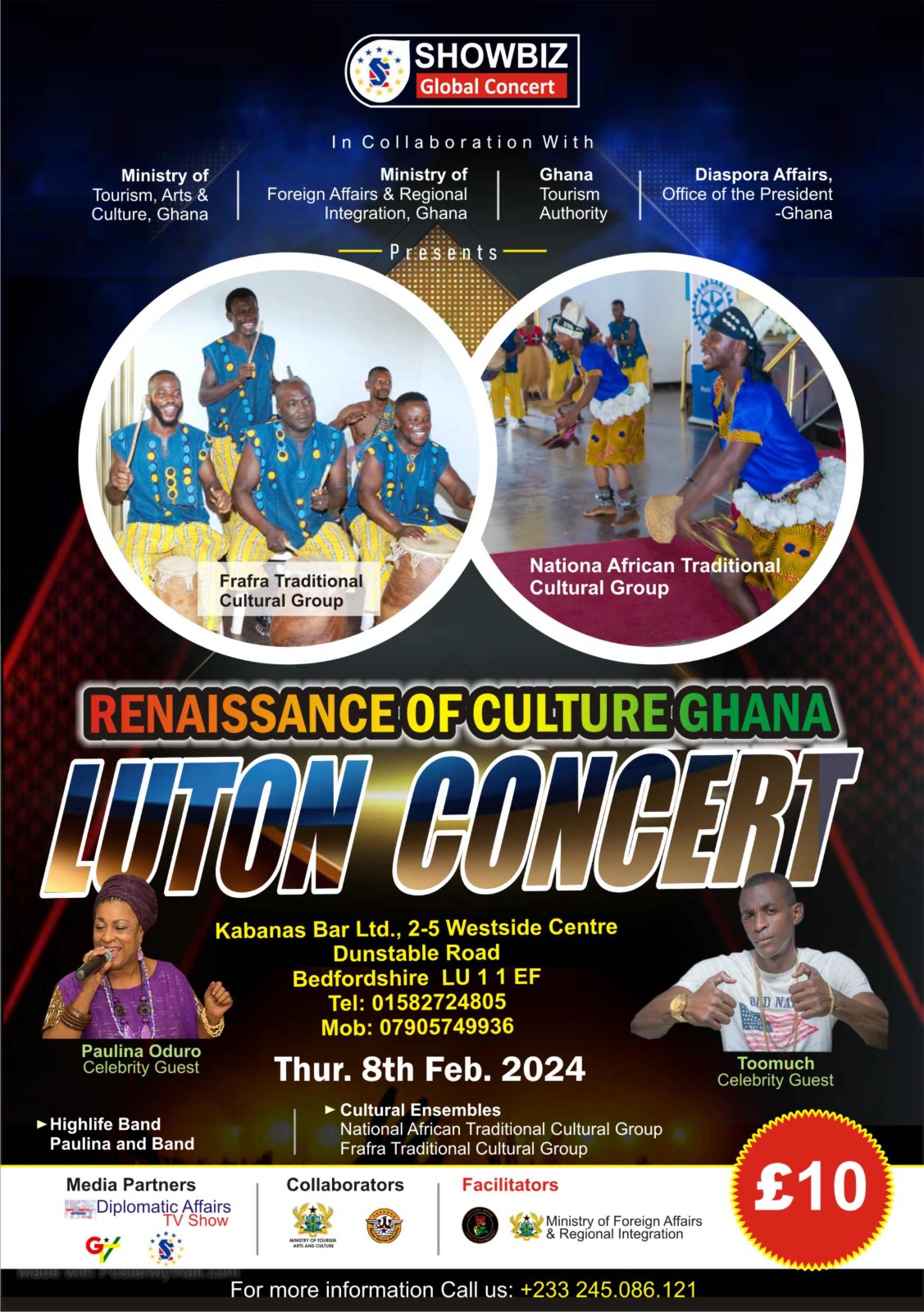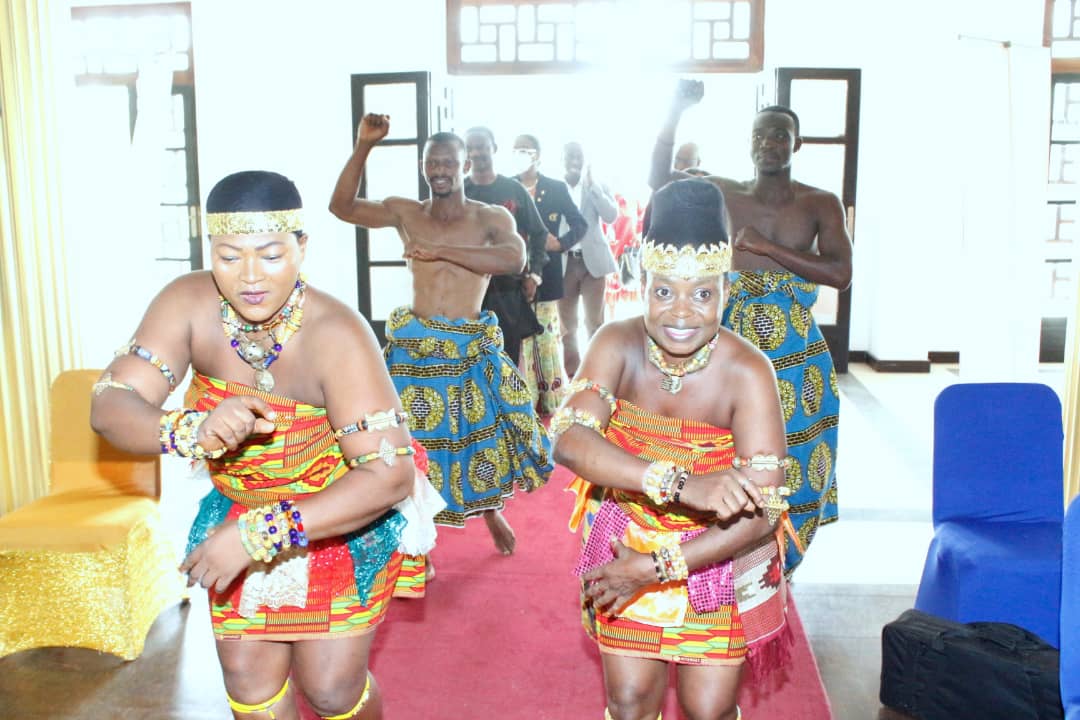Ghana, known as the “Gateway to Africa,” is a country with a cultural heritage as diverse and colorful as its landscapes. Home to a multitude of ethnic groups, each with its own unique customs and traditions, Ghana is a testament to the richness of National African Traditional Culture. In this blog, we’ll take a journey through the heart of Ghana’s vibrant cultural tapestry, exploring the customs, rituals, and heritage that have been passed down through generations.

Ghana boasts a plethora of ethnic groups, each with its own distinct cultural identity. Some of the major ethnic groups include the Akan, Mole-Dagbon, Ewe, Ga-Dangme, and many others. Each group brings its own traditions, language, and rituals to the mosaic of Ghanaian culture, creating a beautifully woven tapestry of diversity.
The Akan people, for instance, are known for their rich folklore, including proverbs, myths, and legends that provide valuable life lessons. The Ewe people are famous for their intricate weaving and vibrant festivals, while the Ga-Dangme people celebrate the Homowo festival, a joyful event where they offer thanks for a bountiful harvest.

Traditional Clothing
Ghanaian traditional clothing is a striking expression of the country’s cultural identity. Kente cloth, a woven fabric made by the Akan people, is perhaps the most famous. With its bold and vibrant colors, Kente is not only a symbol of pride but also a reflection of cultural values. Each pattern and color has a specific meaning, conveying messages of spirituality, history, and social status.
Cultural Festivals
Ghana is renowned for its lively and colorful festivals, which are celebrated with immense enthusiasm. These festivals offer a window into the heart of National African Traditional Culture, and they often center around themes like harvest, unity, and spirituality. Here are a few notable festivals:
Homowo Festival: Celebrated by the Ga-Dangme people, this festival involves a grand parade, music, and dances. It expresses gratitude for the harvest and showcases the unity and resilience of the community.
Asafotufiam Festival: Held by the Anlo-Ewe people, this event features military parades and mock battles, reenacting the bravery and valor of their ancestors.
Aboakyere Festival: The Effutu people celebrate this festival by capturing a live deer to symbolize their hunting skills and strength. It is a testament to their historical roots.
Religious Practices
Traditional religious practices in Ghana are deeply rooted in the connection between the spiritual and physical worlds. The people of Ghana practice various forms of indigenous religion, animism, and spirituality. Shrines and idols are a common sight, and ceremonies are held to communicate with ancestors and appease deities.
One significant practice is the pouring of libations, where prayers and offerings are made to honor the spirits and seek their guidance. This ritual is an integral part of Ghanaian culture and is performed during various life events and ceremonies.Ghana’s National African Traditional Culture is a captivating blend of history, spirituality, and diversity. It’s a living testament to the resilience and vibrancy of the people of Ghana. As the world continues to change and modernize, preserving these traditions and celebrating the rich cultural tapestry of Ghana remains vital. Whether through vibrant festivals, traditional clothing, or spiritual practices, Ghana’s culture continues to flourish, embodying the spirit and soul of the nation. It’s a culture worth celebrating and protecting for generations to come, and a reminder of the enduring beauty of National African Traditional Culture.



